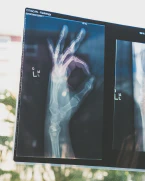Aftermath Insights: School Shootings and Resilience

The Aftermath of School Shootings: A Mother’s Perspective
On April 20, 1999, Columbine High School became the site of one of the deadliest school shootings in history. As a result of this tragedy, 12 students and a teacher were killed, with more than 20 others being injured before the two perpetrators, including my son, took their own lives.
The Columbine shooting had a profound impact on not only the families of the victims, but also on the community and society as a whole. It was a tidal wave of devastation, and it would take years for us to fully comprehend its impact.
As a mother who lost her child in this tragedy, I can attest to the fact that the psychological damage caused by school shootings cannot be measured only by the number of deaths and injuries that took place. It extends far beyond that, affecting those who were in the school at the time, as well as those who participated in rescue and cleanup efforts.
Moreover, the magnitude of a tragedy like Columbine cannot be quantified, especially when it can serve as a blueprint for other shooters who go on to commit atrocities of their own. It has taken me years to come to terms with my son’s legacy and the cruel behavior that defined the end of his life. I grapple with the idea that I failed as a parent, and that my sense of failure brings me to talk about my experiences as a mother of someone who killed and hurt others.
The tragedy of Columbine and other school shootings have left a lasting impact on those affected, from victims and their families to entire communities. It is important to understand the emotional and psychological impact of these events, and to work towards prevention and recovery.
The psychological damage caused by school shootings
School shootings not only result in physical injuries and deaths but also leave a lasting psychological impact on survivors and their loved ones. The speaker in the video talks about the trauma and grief experienced by the victims’ families, survivors, and rescuers who were present during the shooting or the aftermath. She explains that the psychological damage caused by school shootings cannot be measured solely by the number of deaths and injuries that took place.
The speaker highlights the importance of addressing the mental health needs of those who were affected by the shooting. She emphasizes that the psychological effects of such incidents can be long-lasting and can manifest in various forms, including post-traumatic stress disorder, depression, anxiety, and survivor guilt.
Moreover, school shootings can also lead to a sense of fear and insecurity, not just among the individuals who experienced the incident directly but also among the wider community. The speaker notes that school shootings can serve as a blueprint for other shooters and contribute to a culture of fear and trauma.
It is crucial to provide adequate mental health support to those affected by school shootings, including survivors, families, and first responders. The speaker encourages people to listen to those who have experienced trauma and to offer compassion and understanding. By acknowledging and addressing the psychological impact of school shootings, we can work towards building a safer and more supportive community for everyone.
The challenge of understanding and accepting a child’s legacy
The speaker in the video discusses the challenges of accepting a child’s legacy, especially after they have committed a heinous crime. She explains that it can be difficult to reconcile the image of the child you knew with the person who committed such atrocities. The speaker states that it took her years to try and accept her son’s legacy, and that the cruel behavior that defined the end of his life showed her that he was a completely different person from the one she knew.
The speaker also addresses the question that many people ask, which is, “How could you not know?” She explains that she thought of herself as a good mom before the tragedy occurred, and that helping her children become caring, healthy, responsible adults was the most important role of her life. However, the tragedy convinced her that she failed as a parent, and it is partially this sense of failure that brings her to speak about her experience.
The speaker acknowledges the difficulty of understanding and accepting a child’s legacy, especially in cases where the child has committed a heinous crime. She emphasizes that it is important to listen without judgment, and without offering solutions. She suggests that even the most vigilant and responsible of us may not be able to help, but for love’s sake, we must never stop trying to know the unknowable.
Mental health and violence: debunking the stigma
The speaker in the video emphasizes the importance of understanding the connection between mental health and violence. She reminds us that mental illness does not necessarily lead to violence, and only a small percentage of those with a mental illness are violent toward others. However, a significant percentage of those who die by suicide have a diagnosable mental health condition.
The speaker uses the term “brain health” instead of “mental health” because it’s a more concrete term. She points out that those who are in an extremely suicidal state are in a stage four medical health emergency. Their thinking is impaired, and they have lost access to tools of self-governance. Although they can make a plan and act with logic, their sense of truth is distorted by a filter of pain through which they interpret their reality.
It’s essential to recognize that persistent, ongoing thoughts of suicide and devising means to die are symptoms of pathology, and like many illnesses, the condition has to be recognized and treated before a life is lost. The speaker wants to break down the stigma surrounding mental illness and violence and reminds us that listening with an open mind and without judgments is crucial.
She also emphasizes the importance of recognizing that those who are struggling with mental health issues may not always ask for help, and sometimes it’s up to us to reach out to them. It’s important to keep communication open with loved ones and always be willing to lend a listening ear.
In summary, the speaker stresses that the connection between mental health and violence is complex and cannot be simplified. We should avoid stigmatizing those with mental illnesses and instead approach the topic with empathy and understanding.
Suicide as a medical emergency: understanding suicidal thoughts
The video also delves into the topic of suicide and its relation to mental health. Suicide is often seen as a taboo topic and is not discussed openly, but it is a serious issue that affects many people. The speaker explains that suicide should be seen as a medical emergency, just like a heart attack or a stroke.
Suicidal thoughts can be triggered by various factors, including mental health disorders, trauma, and life stressors. The speaker emphasizes that it is crucial to seek professional help if someone is experiencing suicidal thoughts. Therapy, medication, and other forms of treatment can be effective in helping someone overcome these thoughts.
It’s also important to note that suicidal thoughts can be experienced by anyone, regardless of their background or life circumstances. The speaker mentions that her son, who was involved in the Columbine shooting, had suicidal thoughts before the shooting occurred. It’s important to remove the stigma associated with suicide and to create a safe space for people to talk about their feelings and get the help they need.
Overall, suicide is a serious issue that requires attention and care. Seeking professional help is crucial, and removing the stigma associated with suicide can help create a safer and more supportive environment for those who are struggling.
How easy access to guns contributed to Columbine and other shootings
The issue of gun control is a highly controversial topic in the United States, and the Columbine shooting brought it to the forefront once again. One of the main points of discussion was the ease of access to firearms, and how this contributed to the tragedy.
According to the video, the two perpetrators of the shooting were able to obtain firearms without difficulty, despite their young age and troubled past. This is not uncommon in the US, where gun laws vary from state to state, and in many places, it is relatively easy for individuals to purchase firearms, even without undergoing background checks or waiting periods.
The video also points out that the presence of guns in a household can increase the risk of violence, particularly if someone in the household is struggling with mental health issues. In the case of the Columbine shooting, it was later revealed that one of the perpetrators had a history of depression and suicidal thoughts.
Advocates for gun control argue that stricter regulations on firearms could help prevent similar tragedies from occurring in the future. However, opponents argue that gun ownership is a constitutional right and that limiting access to firearms would not necessarily solve the issue of violence.
Regardless of one’s stance on gun control, it is clear that easy access to firearms can contribute to tragic events like the Columbine shooting. As a society, we must continue to have honest and open conversations about the role of guns in our communities and work towards finding solutions that prioritize public safety.
Coping with Trauma and Grief: A Personal Journey
Coping with trauma and grief can be a difficult process, especially after experiencing a school shooting. In the video, the mother shares her personal journey of coping with the loss of her daughter in the Columbine shooting.
One of the most important things she emphasizes is the need to seek support from others. She describes the comfort she found in support groups and therapy sessions, as well as the importance of having a strong support system of friends and family.
The mother also highlights the importance of finding ways to remember and honor her daughter’s memory. She started a foundation in her daughter’s name to help other victims of gun violence, and she participates in activism efforts to promote gun safety laws.
Another aspect of coping with trauma and grief that the mother discusses is the importance of self-care. She stresses the need to take time for oneself and to prioritize mental and emotional well-being. This can involve activities like exercise, meditation, and spending time with loved ones.
Lastly, the mother emphasizes that healing is not a linear process and that it is okay to experience ups and downs along the way. It is important to give oneself grace and time to process emotions and heal.
Overall, coping with trauma and grief after a school shooting is a difficult process, but seeking support, finding ways to honor the memory of loved ones, prioritizing self-care, and giving oneself grace can all be helpful in moving forward.
Learning to forgive ourselves for not knowing or preventing tragedy
One of the most challenging aspects of coping with a traumatic event is dealing with feelings of guilt or regret. It’s easy to look back and wonder what we could have done differently or blame ourselves for not seeing warning signs. However, it’s important to recognize that tragedies are often the result of complex and systemic issues beyond our control.
In the aftermath of the Columbine shooting, many people were quick to blame the parents of the shooters or the school administration for not doing enough to prevent the tragedy. However, as the years passed, it became clear that the situation was much more complicated than that. Mental health services were insufficient, and the ease of access to guns made it too easy for individuals with violent tendencies to act on their impulses.
It’s natural to want to assign blame or find a simple explanation for a complex problem, but in doing so, we risk overlooking the larger societal issues that contribute to these tragedies. Instead, we must learn to forgive ourselves for not knowing or preventing the tragedy and focus on creating a safer, healthier society for everyone.
As one of the speakers in the video points out, forgiveness does not mean forgetting or excusing what happened. Rather, it means acknowledging that we did the best we could with the information and resources we had at the time and working to do better in the future. By focusing on creating positive change, we can honor the memory of those we have lost and work towards preventing future tragedies.
Conclusion
School shootings like Columbine have left a deep impact on the society, and as the video script has shown, there are various facets to this issue. The aftermath of a shooting affects not only the victims and their families but also the broader community, and dealing with the psychological trauma can be a long and challenging process.
It is clear that mental health issues and easy access to guns are significant contributors to the occurrence of school shootings. The stigma surrounding mental illness often prevents people from seeking help, and this can lead to severe consequences. Understanding and addressing the root causes of gun violence is essential to prevent future tragedies.
As we have seen, the parents of shooters often struggle with their child’s legacy and the stigma that comes with it. It is crucial to recognize that they are also victims of the tragedy and to offer them support in coping with their grief and trauma.
It is natural to feel a sense of guilt and shame when such incidents occur, especially when one feels that they could have prevented it. However, it is important to acknowledge that no one person or entity can solely be blamed for such tragedies. It is the responsibility of the entire society to work together to prevent such incidents from happening.
Finally, forgiveness is an essential step in the healing process. Forgiving oneself for not knowing or preventing tragedy can be challenging, but it is necessary to move forward. It is only by learning from the past and taking proactive steps to prevent future tragedies that we can work towards a safer and more peaceful society.
In conclusion, the impact of school shootings extends far beyond the immediate victims, and it is a complex issue that requires multi-faceted solutions. By acknowledging the psychological toll, debunking the stigma surrounding mental health, addressing gun control, and offering support to affected individuals, we can work towards preventing such tragedies from occurring in the future.














